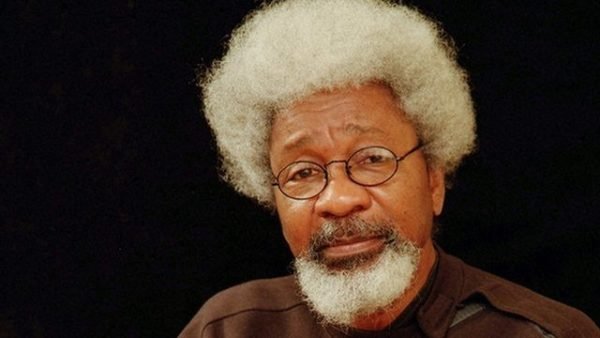Nobel Laureate Professor Wole Soyinka has revealed that the United States government has revoked his visa, effectively barring him from entering the country.
Key Highlights:
- Soyinka says he received an official letter from the U.S. Consulate General in Lagos on October 23, 2025.
- The letter stated that his non-immigrant visa had been revoked under U.S. Department of State regulations.
- The reason for the revocation remains unknown, as Soyinka insists he has no criminal or legal record.
- The 90-year-old writer earlier refused to attend a re-interview invitation from the U.S. Consulate in September.
Speaking during a media briefing at Kongi’s Harvest Gallery, Freedom Park, Lagos, Soyinka said he was taken aback by the move and could not understand why his visa was cancelled.
“It is necessary for me to hold this conference so that people in the United States who are expecting me for this event or that event do not waste their time. I have no visa; I am banned, obviously, from the United States. And if you want to see me, you know where to find me,” he told journalists.
According to him, the notification came through a formal letter signed by officials of the Nonimmigrant Visa (NIV) Section of the U.S. Consulate General in Lagos. The letter, which Soyinka displayed during the briefing, read in part:
Read Also:
- U.S., Egypt, Saudi Arabia, others move to end Sudan’s conflict
- U.S. medical team delivers free surgeries across Delta communities
- U.S. Mission in Nigeria blasts Governors for extravagant spending amid economic hardship
Soyinka expressed confusion and disappointment over the development, adding that he has begun to “look back” through his record for any reason that might have prompted the action.
“I don’t have any past criminal record or even a misdemeanor to qualify for this kind of revocation,” he said. “I’ve started looking back, have I ever misbehaved toward the United States of America? Do I have a history? Have I been convicted? Have I gone against the law anywhere?”
The incident follows his earlier decision not to attend a re-interview appointment scheduled for September 11, 2025, after the U.S. Consulate invited holders of B1/B2 visas for what it described as a “visa interview.”
Soyinka, in that earlier interview with PM News, said he had initially dismissed the revocation letter as a scam or an AI-generated fake. “I thought it was advance-fee fraud because I had never received that kind of letter from any embassy,” he said. “But when I confirmed it was real, I recalled my long-standing courteous relationship with American ambassadors and cultural attachés.”
The U.S. government has in recent times tightened its immigration procedures, citing concerns over illegal migration and overstays. However, it remains unclear whether Soyinka’s case is part of a broader diplomatic or administrative policy shift.
The development has sparked debate among Nigerians and intellectuals worldwide, many of whom regard Soyinka as a global cultural figure and a consistent advocate for democracy and human rights.






